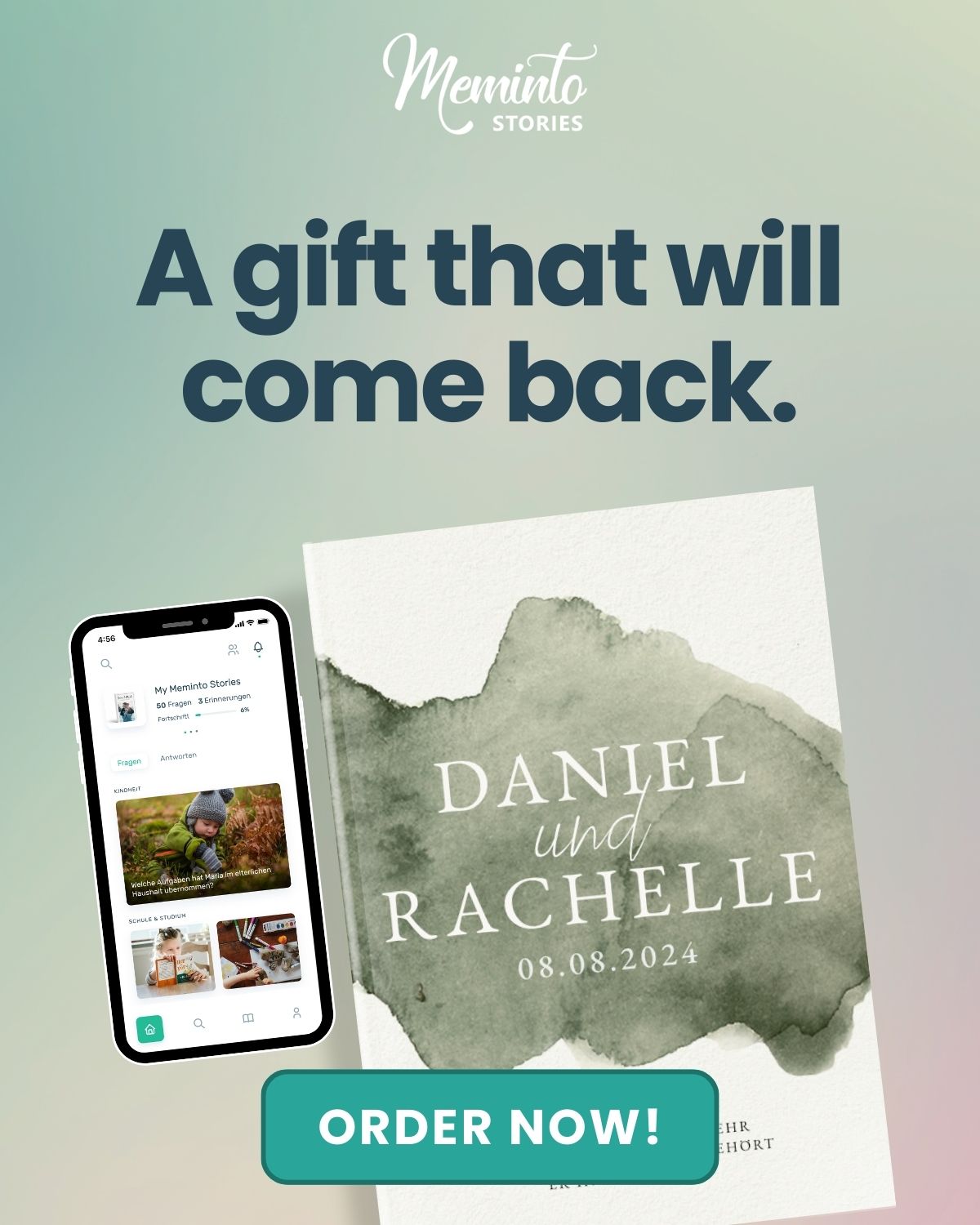A memoir is a valuable opportunity to share your personal experiences and impart life lessons to others. It functions as a tool for self-reflection and can serve as an inspiration for readers. It is also your lasting legacy, even when you are no more.
Have you ever reflected on the events and experiences that have shaped your life? The stories of others have stirred you to share your unique journey. If so, then starting a memoir could be a rewarding endeavor. A memoir is a deeply personal exploration of your life, filled with insights, emotions, and reflections. While the idea of writing a memoir may seem daunting initially, the benefits are numerous. There are multiple reasons why you should start writing your memoir today.
In the rest of this article, we’ll explore some compelling reasons why writing your memoir can be incredibly fulfilling. Additionally, we’ll provide insights on how to kick-start your memoir.
5 Reasons You Should Start a Memoir
- As a means to share your experiences.
- As a means of reflection and healing
- As your legacy
- As a means of advocacy
- As an inspiration

As a means to share your experiences.
When you write a memoir, you get to share all those crazy life experiences, lessons learned, and your unique take on things with others. Your story could inspire or comfort someone who’s been through similar stuff or needs some wisdom.
You get to pass on what you’ve learned to future generations. Your story becomes this treasure trove of advice and inspiration for people going through similar stuff. Plus, as people read your memoir, they’re taking a journey of self-discovery themselves.
Your memoir could be like sitting down with a friend and sharing all your wins and losses and the lessons you’ve picked up along the way. It’s all about creating that connection and understanding with your readers.
As a means of reflection and healing
Writing a memoir can be a profoundly reflective and therapeutic process. As you sift through your past, you dig deep into your life story. You might stumble upon patterns you never noticed, feelings you never dealt with, or new perspectives that bring a sense of clarity and healing.
It’s a chance to make peace with your past, to celebrate your victories, and to acknowledge your growth. You’re not just telling a story; you’re taking control of your narrative and giving yourself the power to move forward with a clearer mind and a lighter heart.
As your legacy
Your memoir is a concrete snapshot of who you are, what you stand for, and how you’ve influenced the world. Remember the tales your grandparents shared or those precious letters and diaries handed down in your family? Imagine the lasting impression your memoir could leave on future generations.
By putting your life story into words, you’re safeguarding a part of yourself for the future, guaranteeing that your voice will echo through time. It’s a precious gift to your loved ones, a testament to your unique journey, and a valuable addition to the ongoing narrative of humanity.
As a means of advocacy
Memoirs can illuminate important social, cultural, and political issues. Memoirs, whether they explore topics such as mental health, addiction, discrimination, abuse, or other challenges, significantly contribute to increasing awareness and fostering understanding of often stigmatized or misrepresented subjects.
By sharing your experiences and perspectives on these topics, you actively contribute to broader discussions and advocate for meaningful change in specific areas.
As an inspiration
One of the most potent aspects of memoir writing is its ability to inspire and uplift others. Your story has the potential to resonate with readers who may be facing similar challenges or grappling with similar questions. Whether you’ve overcome adversity, pursued your dreams despite all the challenges, or found meaning and joy in everyday life, your experiences hold valuable lessons and insights.
You provide hope to those navigating similar paths by sharing your journey authentically and vulnerably. You never know whose life you might touch or whose spirit you might ignite with your words.
How to Start Your Memoir
By now, you’re likely convinced of the importance of writing your memoir, but you might feel overwhelmed about how to begin. Opening up and sharing your innermost thoughts can be daunting. Here are some tips to help you kick-start the process:
Reflect on your motivation.
Before diving into writing your memoir, take a moment to reflect on what’s driving you to share your story. Consider why you feel compelled to pour out the details of your life onto paper or the screen.
Think about the message you want to convey through your memoir.
- Are you hoping to inspire others with tales of resilience and triumph?
- Do you aim to offer comfort and understanding to those facing similar challenges?
- Perhaps you’re eager to educate and enlighten readers about a historical topic or period.
Determine your readers.
Consider who you want to reach with your story. Are you primarily writing to your loved ones to preserve your memories for future generations? Or do you want to connect with a broader audience, sharing your experiences with strangers who might find solace or inspiration in your words?
Understanding your motivation will guide your writing process and ensure that your memoir rings true with authenticity and purpose. It’ll serve as your compass, steering you toward the heart of your story and helping you navigate the highs and lows of the writing journey.
Think about the size of your story.
Consider the length you envision for your memoir. Are you leaning towards a concise narrative or a more expansive exploration of your life story? Several factors will play a role in determining the length.
- If your life story is rich in detail and spans many years or significant events, a more extended memoir may be necessary to capture it fully.
- Your writing style, whether you tend to be brief or detailed, will also influence the length.
- Additionally, understanding your audience’s preferences can help you decide on the ideal length to ensure your memoir resonates and maintains their interest.
Whatever size you have in mind for your memoir, selecting a writing tool that provides flexibility in size options is wise. Meminto is an excellent choice in this regard. Whether you’re aiming for a short, concise memoir or a more extended, more detailed account, Meminto offers a range of tools to suit your needs. Meminto lets you meticulously craft your memoir, guaranteeing a captivating and engaging story.
Outline your story.
Creating an outline for your memoir is essential, providing a structured roadmap for your writing journey and ensuring your narrative flows smoothly and coherently. Here’s a step-by-step guide on how to outline your memoir effectively:
Identify key events and themes:
Begin by identifying the key events, memories, and themes you want to include in your memoir. These could be significant moments from your life, pivotal relationships, personal challenges, or growth and realization. Brainstorm a list of these critical elements to serve as the foundation for your outline.
Organize chronologically or thematically.
Consider if you prefer organizing your memoir chronologically, following your life’s timeline, or thematically, focusing on specific themes or topics. Chronological organization offers a clear narrative structure, while thematic organization allows for more flexibility in exploring various aspects of your life.
Create the main sections or chapters:
Divide your memoir into main sections or chapters based on your identified vital events and themes. Each section should focus on a specific period or theme and contribute to the overall narrative arc of your memoir. Consider how you can group related events and ideas to create a cohesive flow.
Consider transitions:
Pay attention to transitions between sections or chapters to ensure a smooth story flows naturally. Consider how you can effectively transition between different periods, events, or themes to maintain reader engagement and coherence.
Leave room for flexibility.
While outlining your story, remember to leave room for flexibility and spontaneity. Your outline is a roadmap, not a rigid blueprint; deviating from it as needed during the writing process is okay. Allow yourself to explore new ideas and insights that may arise as you write.
Review and revise:
Once you’ve completed your outline, take the time to review and revise it as needed. Ensure it effectively captures your story’s essence and provides a clear roadmap for your writing process. Adjustments may be necessary as your memoir progresses, so remain open to refining your outline.
By creating a well-structured outline for your memoir, you’ll be better prepared to tackle the writing process with clarity and purpose. Use your outline as a roadmap to guide your storytelling, but also allow yourself the freedom to let your narrative evolve as you delve deeper into your memories and experiences.
Open with a dramatic moment:
To kick off your memoir, aim to captivate your readers right from the start. A dramatic moment is critical here. Choose an intense, emotional, or pivotal scene in your life story. You can’t wait to reveal all the details; the idea is to give readers a taste of the excitement and intrigue. This powerful opening sets the stage for what’s to follow and hooks your audience.
Consider a turning point or significant event later in your memoir that you can hint at in the opening. You build anticipation and curiosity by teasing readers with a glimpse of what’s ahead, drawing them deeper into your narrative. Right from the start, this emotional connection sets the tone for the rest of your memoir and keeps readers engaged throughout the journey.
Get started writing.
Starting a memoir can often be challenging, but don’t let that deter you. Just dive in and write whatever comes to mind, whether a funny memory or a random thought. The important thing is to get those words flowing onto the page. Trust that your story will shape itself as you go along. Find ways to keep yourself on track by setting deadlines or sharing your progress with a friend.
If you are using a platform like Meminto to write your memoir, you get daily notifications that serve as reminders to help you stay consistent with your writing. You also get the flexibility of making your entries in audio format if you are not one for text, making the whole writing process more manageable. Register and begin your writing journey.
How to write your memoir with meminto
Creating a memoir with Meminto is a personal and engaging experience. It starts with you getting access to Meminto’s thoughtful question prompts. Meminto designs these questions to delve deeply into your memories, enabling you to narrate your unique life story. You can answer these in writing or, if you prefer, by recording audio or video responses, making the process highly flexible and personal. Use the process to write your memoir with meminto:
- Buy: Make a one-time payment to access a collection of questions that will help guide your storytelling process. This payment includes the cost of printing your memoir in colour.
- Answer: Respond to the questions provided by Meminto. You can do this through their app by recording audio, making a video, or writing text. Your family can also contribute with personal questions.
- Publish: Once you’ve completed your story, Meminto will compile it into a high-quality book. This process is straightforward, and soon after, you will receive your biography in book form to keep or give as a gift.
Please visit Meminto to get started.


















